All Posts
8+ Best Speech-to-Speech APIs | 2025


Key takeaways:
Major tech companies and startups are rapidly advancing voice conversion technology, enabling applications like real-time language translation and voice cloning for accessibility. As demand grows for more personalized audio experiences, the market for speech transformation continues to expand.
Achieving natural-sounding voice conversion—where tone, emotion, and accents are preserved—is technically complex. This is where speech-to-speech APIs come in. Instead of businesses building AI-powered voice conversion from scratch, these APIs provide ready-made solutions that handle key challenges like accent retention, emotional nuance, and real-time processing. With just a few API calls, developers can integrate advanced voice transformation into their applications.
Sounds interesting? Let’s look at some of the best speech-to-speech conversion APIs on the market to help speed up your next product launch.
Speech-to-speech conversion takes spoken audio input and transforms it into a different voice, accent, or language, all while preserving the original speaker's tone, pace, and emotion. A business executive could speak in English and have their voice instantly converted to fluent Mandarin while sounding just like them, or an accessibility app could help someone with speech difficulties communicate clearly.
Machine learning models analyze speech patterns, vocal characteristics, and linguistic elements to generate natural-sounding voice transformations. Neural networks process features like pitch, timbre, and pronunciation to create voice outputs that are nearly indistinguishable from human speech. The models continuously improve through training on diverse voice datasets, enabling increasingly realistic and expressive voice conversion.
Tavus API is a leading solution in this space, enabling developers to offer AI-generated voice and video personalization at scale. With Tavus, end users can create dynamic, hyper-personalized voice content that enhances customer engagement and automation while maintaining a natural, human-like experience.
Try Tavus API’s voice cloning technology today.
Speech-to-speech conversion operates through three interconnected neural networks: a speech recognition engine, a language processor, and a voice synthesizer. When you speak into a microphone, the recognition engine analyzes sound waves and converts spoken words into text data.
The language processor then maps the text meaning and structure, while the voice synthesizer generates new audio matching your original speaking patterns—or transforms them into a different voice entirely.
This is all possible thanks to massive neural networks trained on millions of voice recordings. Each recording helps the AI learn specific speech elements: the subtle shifts in tone when asking questions, the rhythm of natural conversation, even the tiny pauses between words.
Modern speech models can now replicate these intricate patterns with remarkable accuracy, producing voices that sound natural and engaging. No more robotic speech—just smooth, flowing conversation that maintains the speaker's original emotional expression while transforming into the target voice.
Let’s review the top speech-to-speech APIs on the market.

Tavus brings humanlike, face-to-face conversation into any application through its Conversational Video Interface (CVI). Powered by Tavus human simulation models—Phoenix‑3 for lifelike facial rendering, Raven‑0 for perception, and Sparrow‑0 for natural turn‑taking—CVI processes speech in real time with sub‑second latency and delivers a responsive video presence.
The system particularly excels in video-enabled applications. With high‑quality, real-time video APIs, developers can create experiences that respond to speech with humanlike presence, elevating engagement across onboarding, training, and support.
Tavus supports over 30 languages and adapts to different accents and speaking styles while maintaining consistent performance. The platform’s enterprise focus ensures scalability and security for high‑volume, mission‑critical applications.
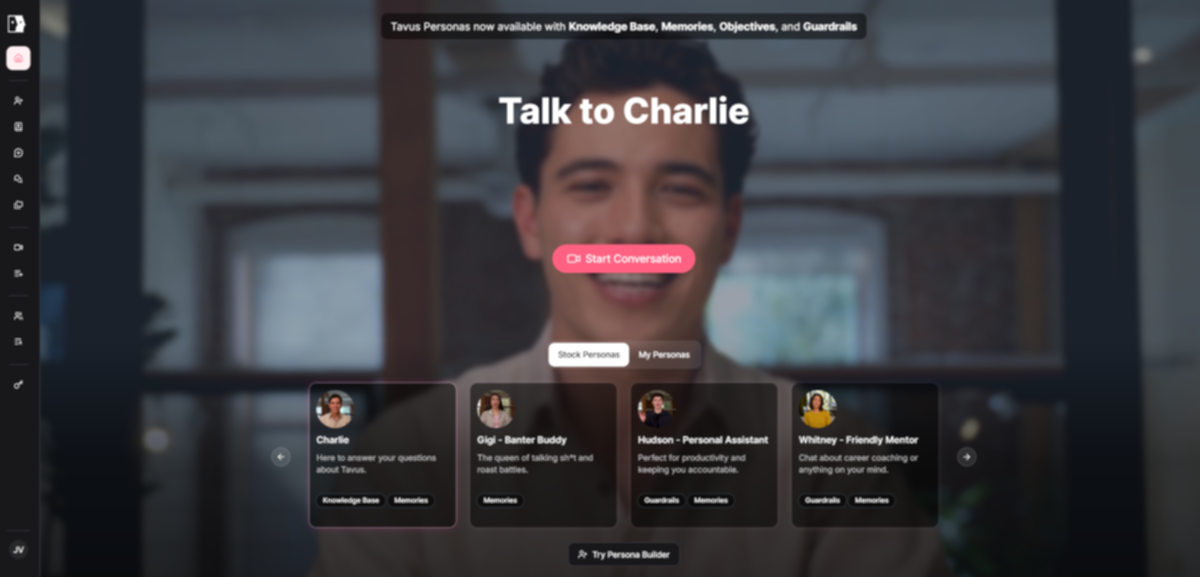
Features:
Pricing:
Learn how you can integrate Tavus API today.

Replica Studios specializes in replicating human voice using text-to-speech and speech-to-speech AI voice technology The platform's API enables developers to transform voices for games, animation, and interactive media.
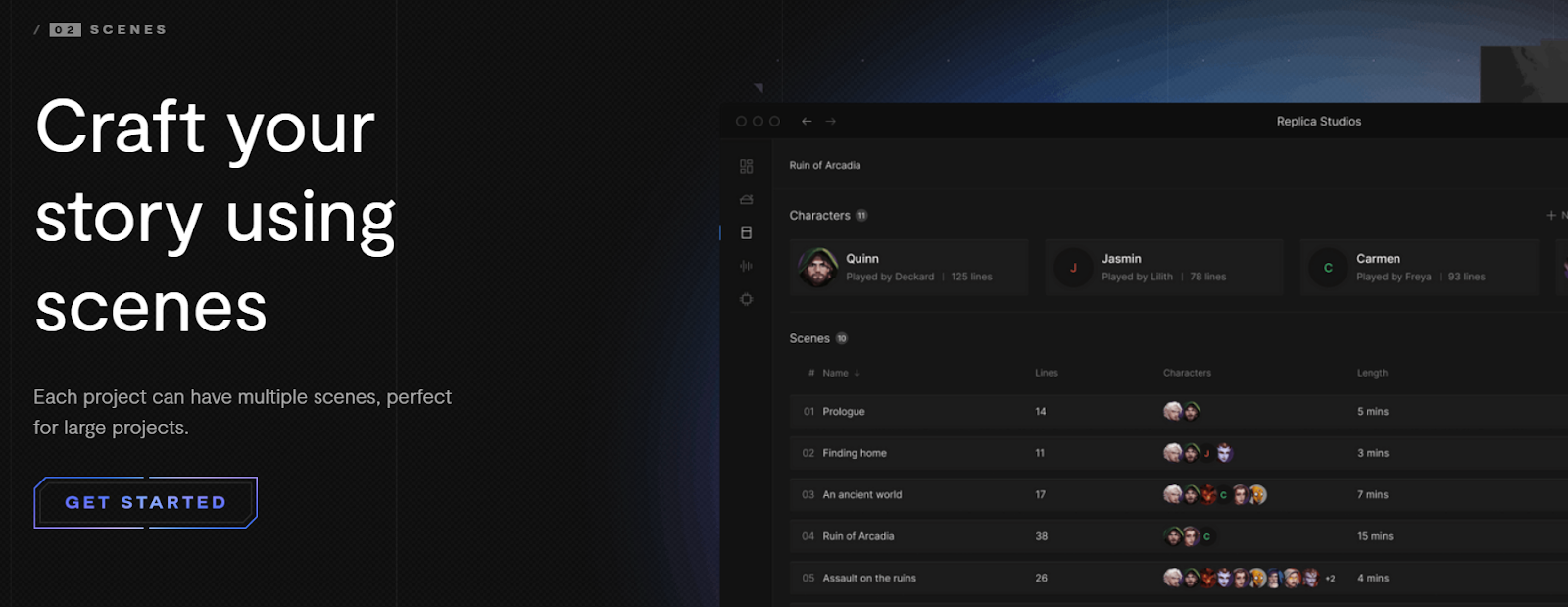
Features:
Pricing:

Resemble AI uses AI to facilitate real-time speech-to-speech transformation with adaptable vocal tones and expressive inflection. The technology enables users to convert spoken content into different languages and to add natural-sounding AI speech to gaming and film.
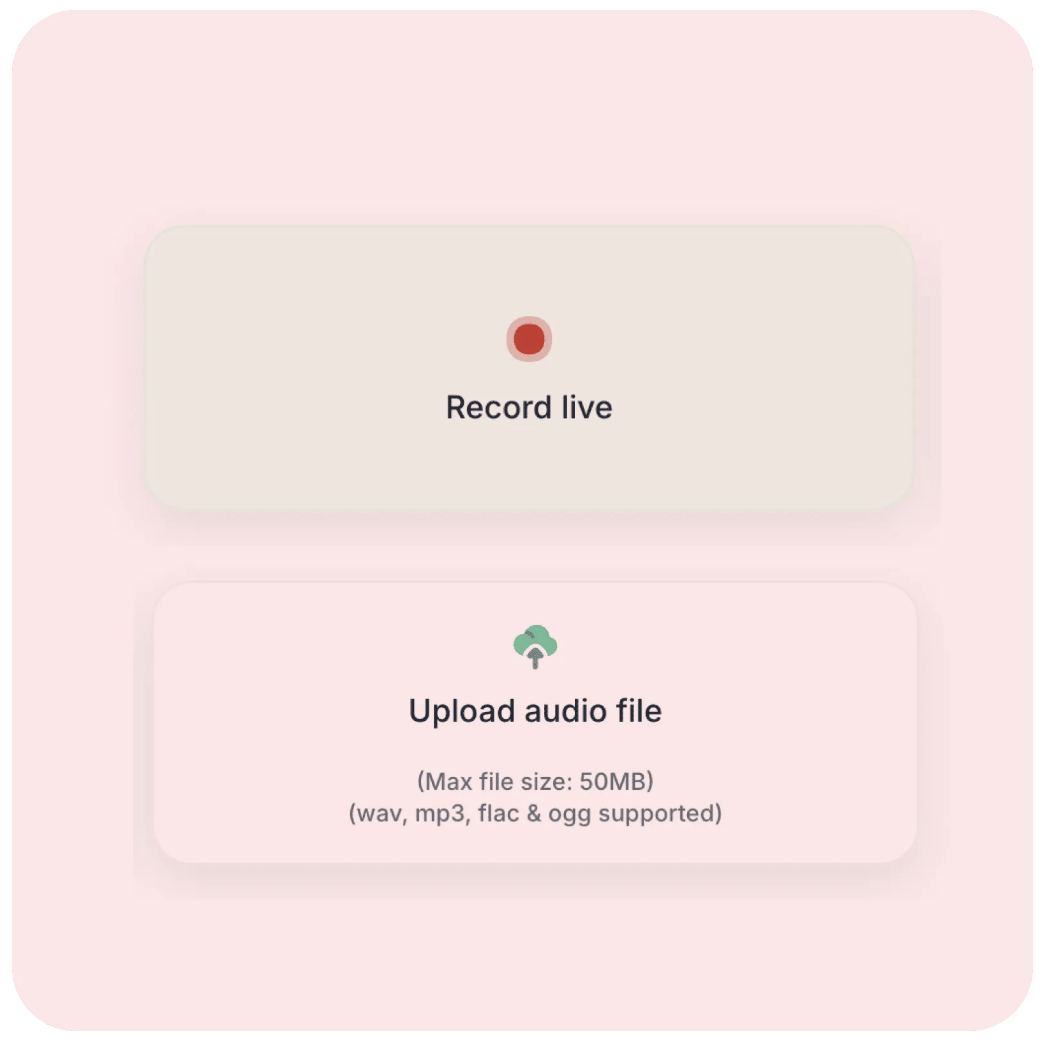
Features:
Pricing:

Synthesys Studio is an AI platform offering speech-to-speech and voice cloning technology as well as tools for avatar and image generation. Users can create different kinds of content in one platform.
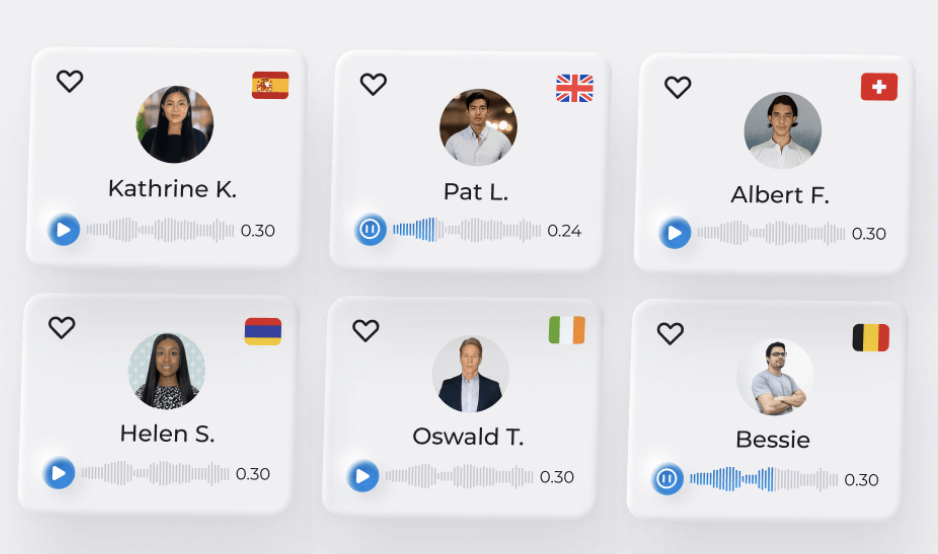
Features:
Pricing:

Respeecher is an artificial intelligence voice solution that uses a blend of public models and proprietary technology. They also offer AI reproductions of celebrity and character voices.
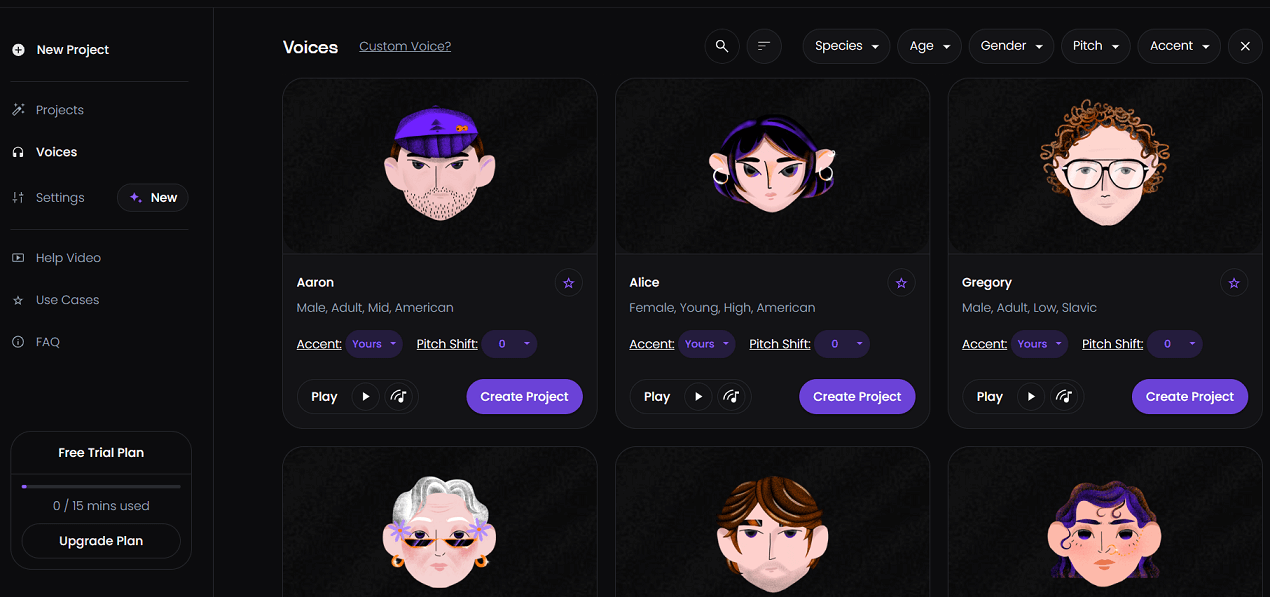
Features:
Pricing:

ElevenLabs is an artificial intelligence platform with a few AI tools for voice generation. The software offers speech-to-speech and text-to-speech technology.

Features:
Pricing:

Microsoft Azure Speech Services offers speech recognition and speech-to-speech capabilities and Azure ecosystem integration for workflow automation. It offers real-time and batch processing services.
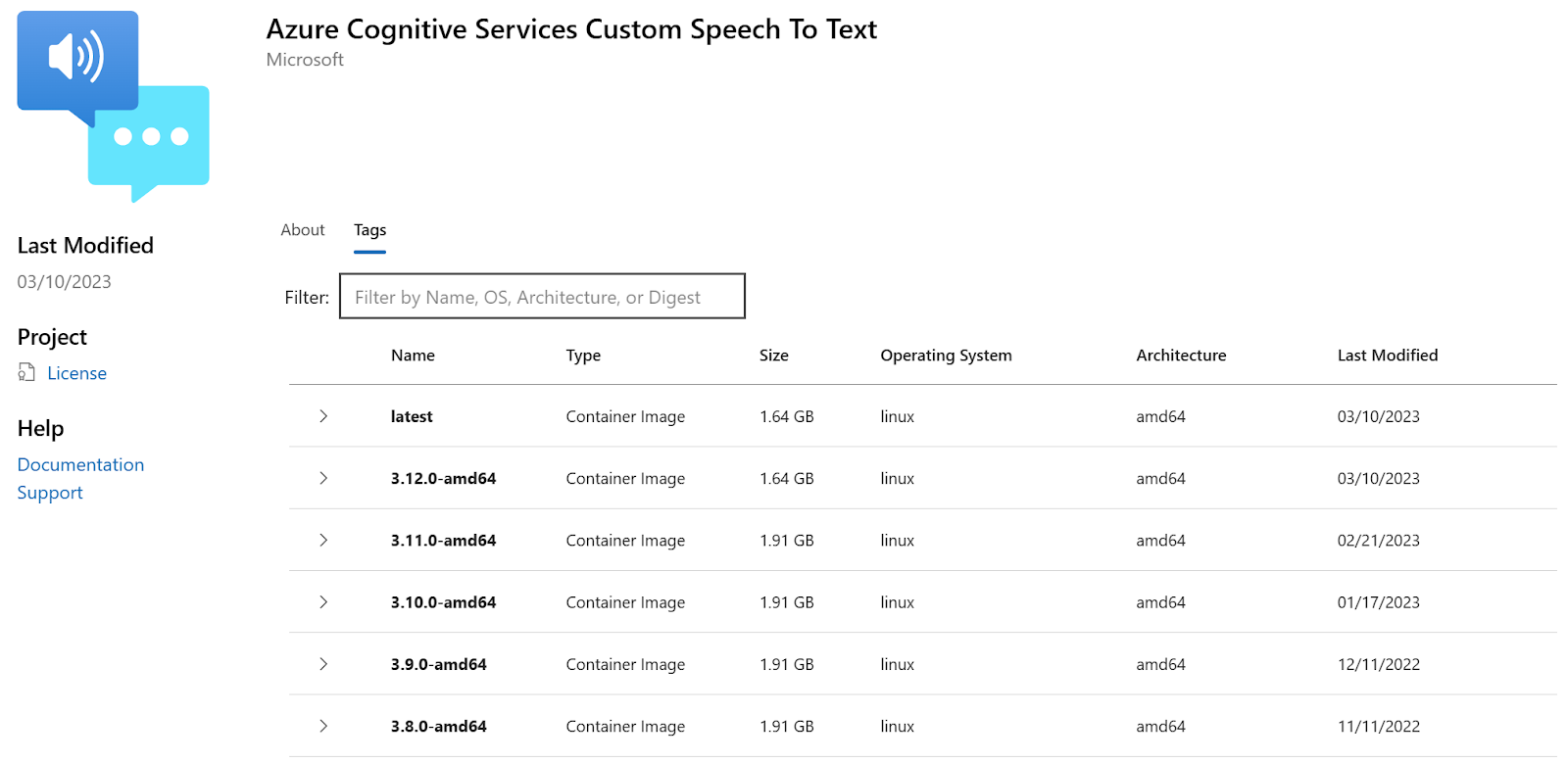
Features:
Pricing: Microsoft Azure offers pay-as-you go pricing that varies based on service type.

Veritone Voice specializes in voice cloning for media production and advertising. Users can create content using speech-to-speech or text-to-speech input and access cloned voices for celebrities and other public figures.
Features:
Pricing:
With speech-to-speech APIs, companies can cut production costs while scaling voice content across markets through direct API integration. The results? Personalized voice experiences delivering 98% accuracy in natural-sounding speech conversion.
Voice conversion tasks like dubbing and localization now take seconds instead of hours. A 60-minute recording converts to a new voice in under five minutes through API automation. Marketing teams can generate thousands of personalized voice messages daily while creative teams focus on content strategy rather than manual voice production.
Sales teams speak directly with international clients as speech-to-speech APIs translate conversations in real-time across 29 languages. The API preserves voice tone, pace, and emotion while converting speech, enabling natural dialogue without interpreters. A Spanish sales pitch converts instantly to Mandarin while keeping the speaker's enthusiasm and personality intact.
Speech-to-speech API helps enterprises with high volume customers and interactions. Instead of constantly having to be present for one-on-one conversations, developers can offer their user the ability to be everywhere at once. This not only enhances efficiency but also ensures a seamless and personalized experience for customers, improving engagement and satisfaction.
App users can leverage speech-to-speech APIs ability to capture and replicate voice and emotion to create a personalized experience for customers. Responses can be tailored and specific for each customer to increase engagement and maintain satisfaction throughout the entire interaction.
Speech-to-speech conversion powers voice-first experiences across major industries. Let’s explore some common speech-to-speech use cases
Speech-to-speech technology enables real-time communication in customer support, healthcare, finance, and emergency services. AI voice agents provide instant, multilingual assistance, troubleshooting, and support without human intervention.
Tavus’ Hummingbird API makes it easy for users to dub and translate their voice and video content in up to 30 languages and generate real-time conversational AI videos. With Tavus’ conversational video interface (CVI) developers can offer end users access to AI agents that can speak, see, and hear in real time.
Learn more about Tavus’ CVI today.
Film studios and streaming platforms depend on speech-to-speech conversion for efficient content localization. Netflix converts actor voices into different languages while preserving their emotional performance, letting viewers worldwide experience shows in their native language without losing the original acting nuance.
Game developers use voice conversion to create region-specific voices, preserving character personality across languages. In Assassin's Creed, for example, the protagonist speaks Spanish in Mexico while retaining their original tone. Animation studios also use this tech to adapt voices into multiple languages, reducing costs and recording time.
Universities and online learning platforms integrate speech-to-speech conversion to make education accessible across languages. Universities translate lectures while preserving teaching style, apps like Duolingo improve pronunciation, and read-aloud tools assist students with reading difficulties.
Speech-to-speech APIs also power read-aloud features for students with reading difficulties. A biology textbook can be narrated in a clear, engaging voice at adjustable speeds. Online tutoring platforms convert tutor voices between languages in real-time, allowing Chinese students to learn from English-speaking teachers naturally.
Speech-to-speech technology transforms customer service with AI voice assistants that handle inquiries at scale, reducing wait times and providing instant, personalized support. These systems understand intent, respond empathetically, and escalate complex issues when needed.
Tavus API is a powerful tool that enables businesses to implement AI-driven voice and video personalization at scale. With Tavus, companies can create dynamic, hyper-personalized voice interactions that adapt to individual users in real time.
Add conversational AI speech-to-speech technology to your tech stack today.
Speech-to-speech technology enhances marketing and sales with AI-driven, personalized voice interactions that boost engagement and conversions. It enables hyper-personalized messaging, tailoring sales pitches and promotions to individual customer preferences and behavior.
Tavus API takes speech-to-speech technology a step further by offering AI-driven personalized video and voice automation. With Tavus, developers can offer businesses the ability to generate hyper-personalized marketing videos at scale. This allows marketing and sales teams to automate outreach while maintaining a human touch, delivering customized pitches, thank-you messages, and follow-ups in a way that feels natural and engaging.
Integrate Tavus into your tech stack today.
Here are some of the most commonly asked questions about speech-to-speech APIs.
Speech-to-speech conversion analyzes spoken audio input and generates new audio in a different voice, maintaining the original speaker's tone, pace, and emotion. Text-to-speech reads written text aloud using predefined voice models. Converting between speech requires precise neural processing to capture subtle vocal elements like pitch variation, speaking rhythm, and emotional undertones.
For example, when a marketing team needs to localize video content, speech-to-speech APIs can transform the narrator's voice into multiple languages while keeping their unique speaking style intact.
Free speech-to-speech API tiers exist but include specific limitations:
Paid tiers remove restrictions and add features like emotion detection, accent preservation, and multi-speaker separation. Developers should calculate expected usage volume when choosing between free and paid options.
Tavus API offers a free plan for developers to test out the platform, with three minutes of free video generation credit and three minutes of conversational video credit.
Adding speech-to-speech capabilities requires:
With Tavus API, you can access speech-to-speech technology without the labor-intensive process of configuring the AI model—you can provide high-quality AI video generation without any experience with artificial intelligence or coding.
Voice transformation lets you convert spoken words into any voice, accent, or language while keeping the original emotion and tone intact. The process happens in milliseconds—making real-time conversations possible across languages and accessibility needs.
Tavus API allows developers to build one-of-a-kind AI generated video experiences. End users can build unlimited personalized AI videos in minutes, including high-quality AI voice cloning. With Tavus API, developers can offer easy AI tools to build authentic digital twin experiences with only two minutes of training video. And with access to cutting-edge speech-to-speech technology, Tavus can replicate not only users’ faces and expressions but their vocal tone, accent, and speech patterns.